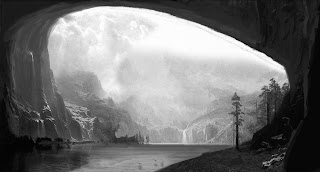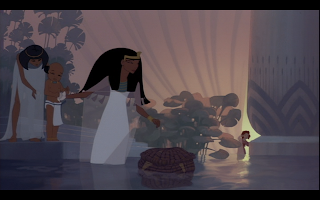Dreamland
Edgar Allan Poe
By a route obscure and lonely,
Haunted by ill angels only,
Where an Eidolon, named NIGHT,
On a black throne reigns upright,
I have reached these lands but newly
From an ultimate dim Thule-
From a wild clime that lieth, sublime,
Out of SPACE- out of TIME.
Bottomless vales and boundless floods,
And chasms, and caves, and Titan woods,
With forms that no man can discover
For the tears that drip all over;
Mountains toppling evermore
Into seas without a shore;
Seas that restlessly aspire,
Surging, unto skies of fire;
Lakes that endlessly outspread
Their lone waters- lone and dead,-
Their still waters- still and chilly
With the snows of the lolling lily.
By the lakes that thus outspread
Their lone waters, lone and dead,-
Their sad waters, sad and chilly
With the snows of the lolling lily,-
By the mountains- near the river
Murmuring lowly, murmuring ever,-
By the grey woods,- by the swamp
Where the toad and the newt encamp-
By the dismal tarns and pools
Where dwell the Ghouls,-
By each spot the most unholy-
In each nook most melancholy-
There the traveller meets aghast
Sheeted Memories of the Past-
Shrouded forms that start and sigh
As they pass the wanderer by-
White-robed forms of friends long given,
In agony, to the Earth- and Heaven.
For the heart whose woes are legion
'Tis a peaceful, soothing region-
For the spirit that walks in shadow
'Tis- oh, 'tis an Eldorado!
But the traveller, travelling through it,
May not- dare not openly view it!
Never its mysteries are exposed
To the weak human eye unclosed;
So wills its King, who hath forbid
The uplifting of the fringed lid;
And thus the sad Soul that here passes
Beholds it but through darkened glasses.
By a route obscure and lonely,
Haunted by ill angels only,
Where an Eidolon, named NIGHT,
On a black throne reigns upright,
I have wandered home but newly
From this ultimate dim Thule.





























